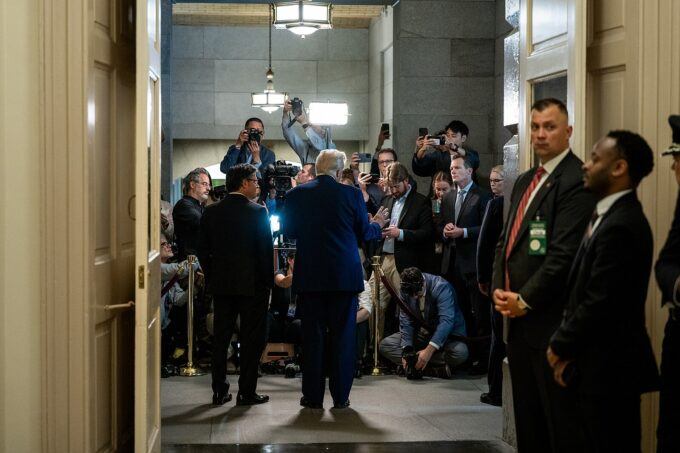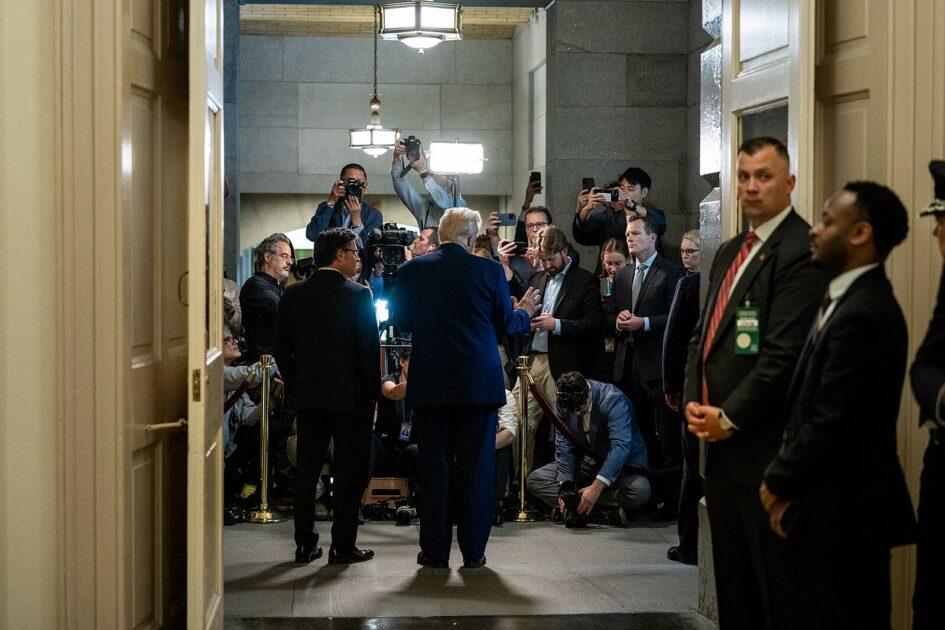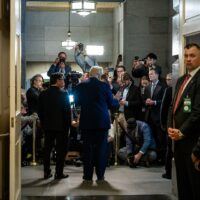


































































Photograph Source: The White House – Public Domain
Pragmatic: Reasonable, practical, logical, workable. Designed to compliment.
“President Trump’s approach in Latin America appears pragmatic.” (New York Times, November 18, 2025, front page caption.) “Mr. Trump’s approach appears purely pragmatic.” (NYT front page news story, “Trump sees U.S. as Boss of Americas,” November 16, 2025.)
Since the declaration of the Monroe Doctrine in 1823, the United States has pursued a monopoly on security concerns regarding Central and South America. The United States lacked the military power to enforce this policy in the 19th century, but ever since the Spanish-American War in 1898 there has been widespread use of U.S. military power to assure domination of the area.
The policy of political and military dominance enabled the building of the Panama Canal early in the 20th century. Now Donald Trump’s has threatened to regain the canal that President Jimmy Carter had given to Panama in 1977. Hardly pragmatic.
At various times, the United States has used covert action to force regime change in the hemisphere. President Dwight Eisenhower pursued such a policy in Guatemala in 1954; President Lyndon Johnson took advantage of the weakness of the Dominican Republic in 1965; and President Richard Nixon used the Central Intelligence Agency in 1972 to overturn a free and fair election in Chile. All of these events were excellent examples of presidential power to use the CIA in covert action.
Only President Franklin Roosevelt (the Good Neighbor policy in the 1930s) and President John Kennedy (the Alliance for Progress in the 1960s) made serious and reasonable efforts to apply more conciliatory policies toward the states of South and Central America. And President Jimmy Carter was heroic in placing the Panama Canal Zone in the hands of Panama, which was both unpopular and politically costly..
There are many words to describe Trump’s policies toward the Western Hemisphere, but “pragmatic” is not one of them. When he took office this year, Trump pledged to seize the Panama Canal, renamed the Gulf of Mexico the Gulf of America, and threatened to seize Greenland from Denmark. This is bluster, not pragmatism. Nor is his creation of a crisis with Venezuela pragmatic. It is an outright assault on that country’s sovereignty, although it is still not certain that Trump plans to invade and occupy the country. Nevertheless, as of November 21, the U.S. Navy has destroyed more than 20 small boats and killed more than 80 Venezuelans and Colombians without providing any evidence of their involvement in drug trafficking to the United States.
The most bizarre explanation for U.S. actions in Venezuela has come from Secretary of State Marco Rubio, who said “We have deployed U.S. assets and interests all over the planet, but when we do it in our own hemisphere…everyone sort of freaks out.” In a column last week titled “Trumpty Dumpty and the boat strikes,” George Will took Rubio to task for using such a juvenile expression as “freaks out” that a “John Quincy Adams or Dean Acheson” would never have used. But the more serious problem is that the United States is engaged in lethal and illegal kinetic strikes that have made the international community a more dangerous place.
My major worry is that, having gone public with the authorization to the CIA to conduct covert action in Venezuela, Trump will order the CIA to pursue a policy of assassination against President Nicolas Maduro. President Gerald Ford signed the first of several executive orders that banned CIA from conducting assassinations. But executive orders, federal law, and even the Constitution itself mean very little to Donald Trump.
The mainstream media has thus far ignored the “Donroe Doctrine” that appears to carve the international arena into zones of influence. Trump appears willing to allow Russia to remain influential in Central and Eastern Europe; to allow greater Chinese influence in the Indo-Pacific region; and to seek greater control in the Western Hemisphere for himself and the United States. In walking away from problems in Europe and Asia in order to be dominant at home, Trump has created greater anxiety among our European allies and Ukraine, and has signaled that he would not be engaged in any defense of Taiwan.
The current campaign against Venezuela is reminiscent of the phony argument regarding weapons of mass destruction that was used to justify the invasion of Iraq in 2003. Two decades later, U.S. military forces remain in Iraq. The labeling of Venezuela as a “narco-terrorist” state ignores the fact that the fentanyl that plagues America is manufactured in Mexico, not Venezuela. And the cocaine is produced in Colombia. If Venezuela is involved in transport, it is to move cocaine to Trinidad-Tobago, where it is transported to Europe and West African countries, not the United States.
There is nothing “pragmatic” about engaging in a conflict where only one side, the United States, is armed, and the factual basis for the conflict is created out of whole cloth. It wasn’t pragmatic to create false facts to justify the Mexican-American War, the Spanish-American War; the Vietnam War; or the Iraq War. And it certainly won’t be “pragmatic” to engage in a wider conflict with Venezuela.
The post NYTs Calls Trump Strategy in South America “Pragmatic” appeared first on CounterPunch.org.
This post was originally published on CounterPunch.org.